


Campaign Financing in Israel
Written By: Dr. Assaf Shapira
A discussion of the principal issues pertaining to campaign financing in Israel, written before the Knesset elections of 2015.

Terror triage – Who comes first?
Written By: Dr. Idit Shafran Gittleman
In the aftermath of the Tel-Aviv terror attack, it is becoming increasingly clear that the current round of terror will not end soon. When there are casualties of attacks, not only do security issues arise, but so do medical issues – and these can be equally as complicated. This article originally appeared in Crescent City Jewish News.
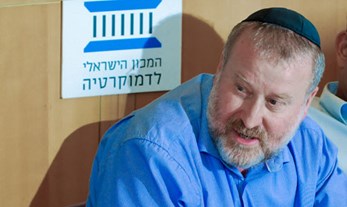
With Approval Of Mandelblit: Time to Consider Shortcomings of Outgoing Weinstein
Written By: Dr. Guy Lurie
As Israel gets ready to transition to its new Attorney General Avichai Mandelblit, now is a good time to ask ourselves: Was Yehuda Weinstein a good Attorney General? An opinion piece by Guy Lurie, which originally appeared in the Jerusalem Post.
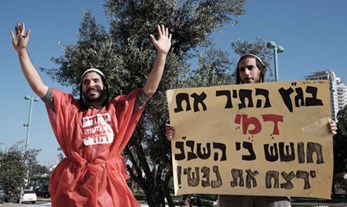
Torture Laws Must Apply To Arab And Jew Alike
Written By: Prof. Mordechai Kremnitzer
Dr. Mordechai Kremnitzer argues that it is time for Israel to examine the Shin Bet security service's regulations, based on the assumption that they apply to all residents of Israel. One law must apply to all suspected perpetrators of terrorist acts — Jews and Arabs alike.

The High Price of Ignoring Poverty
Written By: Dr. Sami Miaari
Following the publication of the Poverty Report, Dr. Sami Miaari points out the large percentage of Arab Israelis that live in poverty. He says the current situation requires a new strategy and economic investment on several levels simultaneously. This article first appeared on Times of Israel.
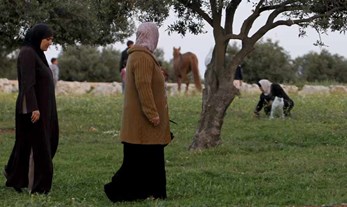
Israeli Public Divided Over Trust for Arab Citizens
Written By: Mr. Chanan Cohen
IDI Researcher Chanan Cohen says that while the greatest tension in Israel is between Arab and Jewish Israelis, there is cause for hope. The vast majority of Jews support having Arabic translations of public signs in Israel, teaching Arabic in school and having Arab citizens represented in the civil service. This article was first posted in the New York Jewish Week.
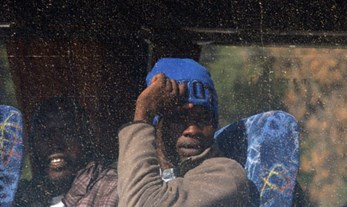
Between ‘Voluntary’ Departure to an Undisclosed Third State and Indefinite Detention
Written By: Prof. Reuven (Ruvi) Ziegler
Israel refuses to officially disclose the identity of the states to which relocation takes place.
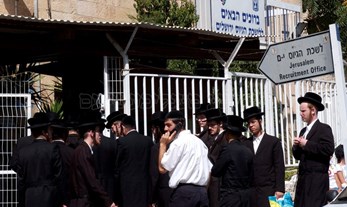
The Charedi Draft: Here We Go Again
Written By: Prof. Yedidia Z. Stern
The desired result could have been achieved quietly and efficiently had the Knesset adopted a rational arrangement that would encourage military service through positive and negative economic incentives. (This article was originally published in the Jewish Journal of LA.)

Our Democracy is Being Tested
Written By: Dr. Amir Fuchs
Dr. Amir Fuchs delivers the following message: While Israeli security forces must fight terror using all legal means available to them, Israeli leaders have another and no less important role: to maintain the democratic character of the state. This is especially the case when it comes to equality, minority rights and defending the innocent from acts of revenge and/or lynching.
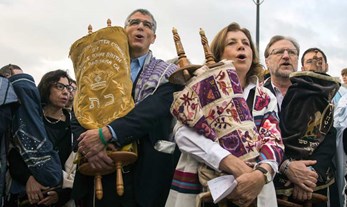
Jewish Unity at Stake: Israel Must Recognize and Fund All Sects of Judaism
Written By: Yohanan Plesner
Prime Minister Benjamin Netanyahu must charge forward and turn his words into action. Only then will he be able to guarantee his vision of Israel as “a source of unity for our people.” (This article was first published by JNS.org.)
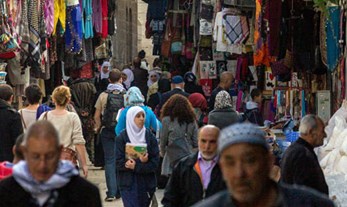
How Not to Achieve Coexistence
Written By: Dr. Sami Miaari
Arab elected officials have disappointed the public time after time with their lack of professionalism in how they lead their constituents toward political change. (This article was originally published by the Jerusalem Post.)

High Court Seems to Think That Only Arabs Need Deterrence
Written By: Dr. Amir Fuchs
The Israeli High Court's claim that home demolitions need not be applied to Jews because they support terror less than Palestinians must be rejected. (This article was originally published by Haaretz.)

Are House Demolitions an Effective Tool in the Battle Against Terrorism?
Written By: Adv. Tal Mimran
Is demolishing terrorists' homes an effective deterrent? Israel Democracy Institute research – based on previous work conducted by the security establishment – has cast a doubt on its value. There was also a research report published in 2005 by a professional committee led by Maj. Gen. (Ret.) Udi Shani, which led to the cessation of house demolitions for three years.
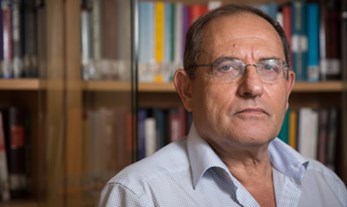
Thou shalt not kill?
Written By: Prof. Mordechai Kremnitzer
A society that is doomed to live forever by the sword cannot hope to be truly humanist and democratic. Originally published in the Jerusalem Report.

What this war is about and how it will end
Written By: Admiral (Res.) Amichay (Ami) Ayalon
Parallel to negotiations, a process, designed to create a two-state reality through independent and unconditional steps, must be implemented

The Meaning and Significance of the Rabin Assassination
Written By: Prof. Mordechai Kremnitzer
Twenty years have passed since Yigal Amir murdered Prime Minister Yitzhak Rabin. Both for political reasons and for the sake of national unity, Israeli society has avoided a fundamental and straightforward examination of the background, meaning, and implications of this event. But unity cannot be based on whitewash or false symmetry between left and right. The following is an invitation to conduct the kind of inquiry that is necessary.
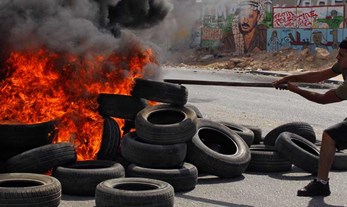
Ignite Hope, End the Violence
Written By: Adv. Eli Bahar, Dr. Nasreen Haddad Haj-Yahya
Nasreen Hadad Haj-Yahya and Eli Bahar say the biggest difference between the security situations in 2000 and now is the profound lack of understanding between the two sides. This article was first published on the Times of Israel website.

‘Jewish and Democratic’ Even in Tough Times
Written By: Dr. Shuki Friedman
Dr. Shuki Friedman reminds us that the values that are so deeply rooted in our Jewish worldview, are part and parcel with the democratic values of our state and its outlook on the obligation to preserve life and human dignity using the rule of law.

A Return to Coexistence
Written By: Adv. Eli Bahar
Eli Bahar says we must not accept this state of affairs as a fait accompli. He reminds that we can change the situation even if it seems that it has almost reached the point of no return.

The Media and the Terrorism of Knives
Written By: Dr. Tehilla Shwartz Altshuler
Tehilla Shwartz Altshuler reminds us that the media is the cement that holds the stones of democracy together. As the arbiter of reality, the purpose of the media is to show us, the citizens, what is going on around us. To the same extent, it is also supposed to reflect our feelings and our level of trust in the decision-makers and representatives whom we elect to govern us.
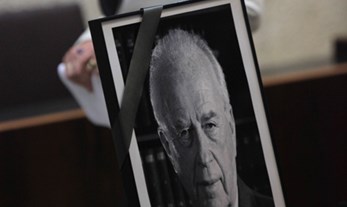
Only As a Democracy Will We Win
Written By: Yohanan Plesner
IDI President Yohanan Plesner says that even after 20 years, the assassination of former Prime Minister Yitzhak Rabin remains the Israeli democracy's breaking point. He calls on all peoples and their leaders to develop a joint democratic vision.
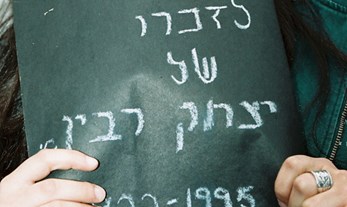
The Rabin Assassination and Religious Responsibility
Written By: Prof. Yedidia Z. Stern
IDI Vice President Prof. Yedidia Stern discusses why the memorial day for the murder of Prime Minister Yitzhak Rabin was a religious act. Today's religious Zionist leadership must respond courageously.
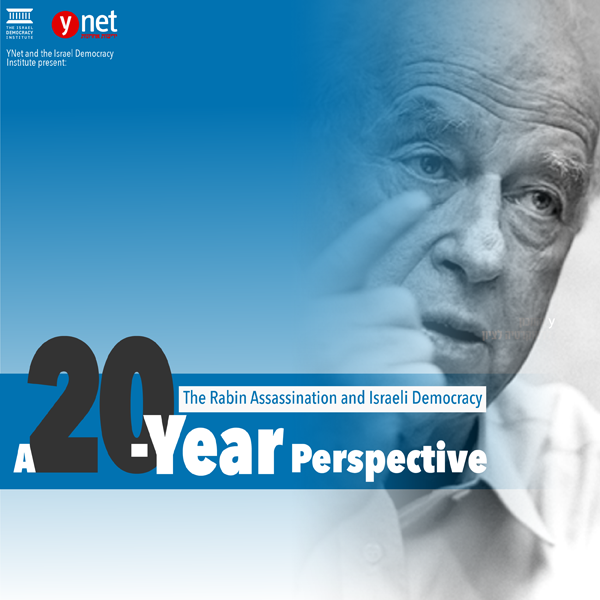
Rabin memorial into ‘Israeli Democracy Day’
Written By: Prof. Yedidia Z. Stern
In this memoir, Prof. Yedidia Stern recounts the murder of Prime Minister Yitzhak Rabin and calls on the Israeli public to turn that horrid day into an annual “Israeli Democracy Day." This article was first published in the Jerusalem Post.

Praying with 'Sinners'
Written By: Prof. Yedidia Z. Stern
In a poetic piece written for Yom Kippur, IDI Vice President Prof. Yedidia Stern asserts that prayer should echo the existential human experience, reflect the ongoing dialogue with alternative cultures, and allow the individuals praying to bring their whole selves into their prayer.
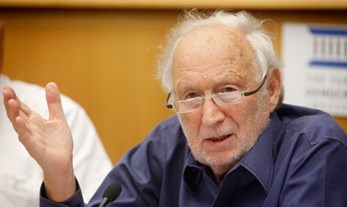
The Passing of Supreme Court Deputy President Mishael Cheshin: A Loss to the People and State of Israel
Written By: Prof. Yedidia Z. Stern
IDI Vice President Prof. Mordechai Kremnitzer remembers Israeli Supreme Court Deputy President Mishael Cheshin, a luminary of the Israeli judicial system and warrior against governmental corruption, who regularly spent time at IDI and whose clear voice on legal issues will be sorely missed.

Israel’s next Equal Employment Opportunity Commissioner should be an Arab
Written By: Dr. Talya Steiner
The identity of the next commissioner is so important.
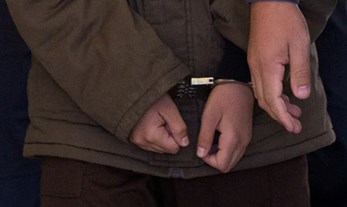
It’s Time to Stop the Use of Administrative Detention in Israel
Written By: Dr. Amir Fuchs
Is administrative detention an appropriate response to Jewish terror such as the events in Duma? Dr. Amir Fuchs argues that there is no justification for administrative violations of a person’s freedom except for in concrete emergencies in which criminal law would be impossible to apply.
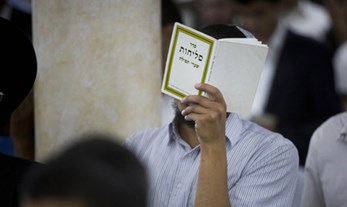
An Israeli Version of Repentance
Written By: Prof. Yedidia Z. Stern
The High Holy Days are a time of reflection and personal growth. But since the founding of the State of Israel, personal repentance is no longer enough. IDI Vice President Yedidia Stern stresses the need to transform Jewish traditions from the personal sphere to the public sphere and calls for collective, national repentance, Israeli style.

In the land of hidden legislative aims: HCJ 8665/14 (detention of asylum-seekers in Israel- Round 3)
Written By: Prof. Reuven (Ruvi) Ziegler
IDI researcher Dr. Ruvi Ziegler appraises the judgment of the Israeli Supreme Court in the third round of constitutional challenges to legislation authorizing detention of asylum-seekers in Israel. He critiques the judicial assessment of explicit and hidden legislative objectives, the role of international refugee law in the decision, and the normative question of irregular entry of asylum-seekers, and highlights legal challenges concerning the removal of asylum-seekers from Israel to third states.


